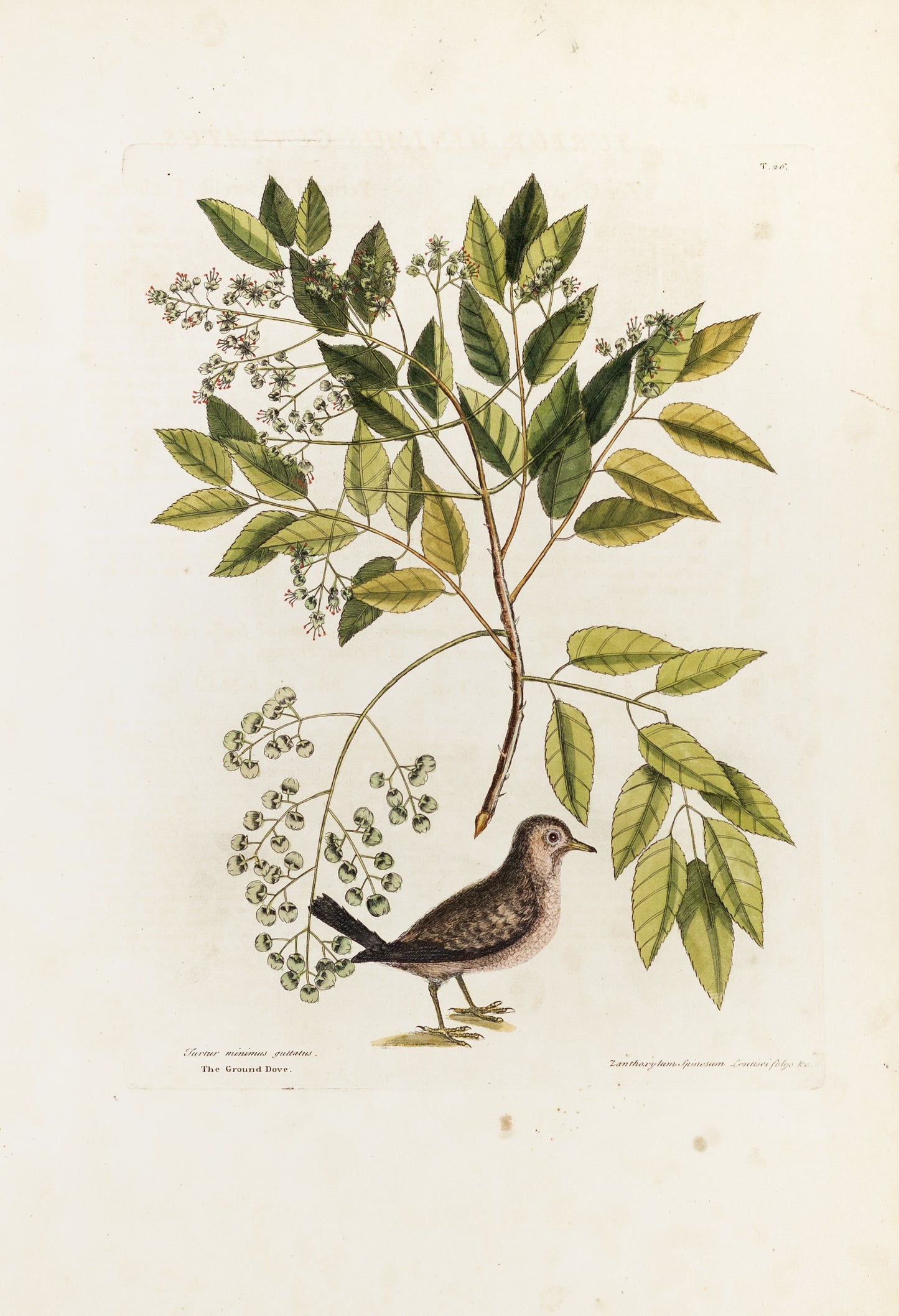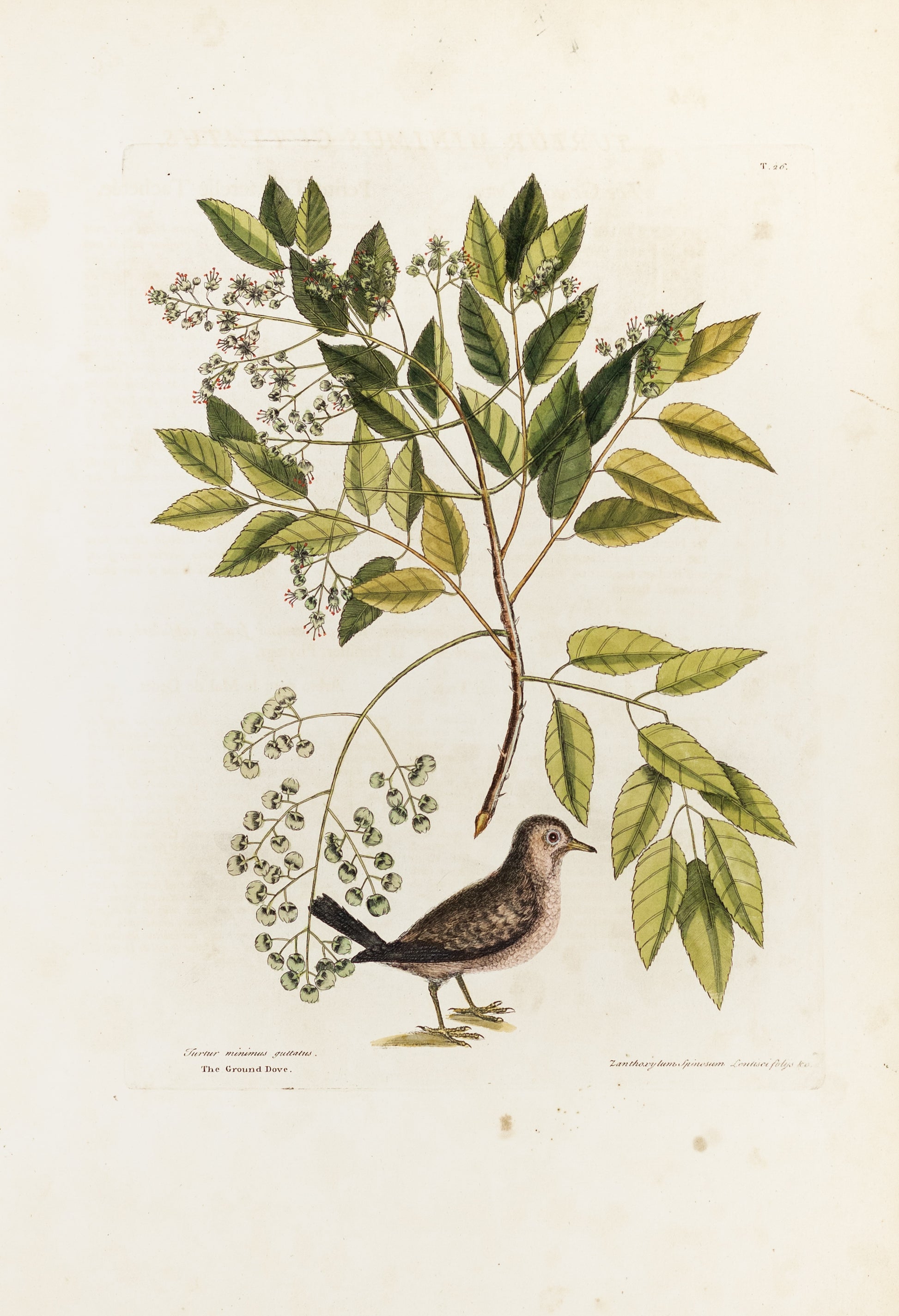from: All Birds/Ornithology
Catesby, Mark. Vol. 1, Tab.26, The Ground Dove
Catesby, Mark. Vol. 1, Tab.26, The Ground Dove
Couldn't load pickup availability
Mark Catesby
The Ground Dove, Vol. 1, Tab.26
from Natural History of Carolina, Florida and the Bahama Islands...
London, 1771-1810
Engraving with hand coloring
20 3/4" x 14 1/2" sheets
Currently known as the common ground-dove, Columbina passerina and Hercules' club, Zanthoxylum clava-herculis*, Catesby described these subjects as follows:
TURTUR MINIMUS GUTTATUS.
The Ground-Dove.
The weight of this Dove was an ounce and half: In size about the same as a Lark. The Bill is yellow, except the end, which is black. The iris of the Eye red. The Breast and whole Front of the Bird is of a changeable pourple colour, with dark purple spots. The large Quill-Feathers and Tail are of a muddy purple. The Legs and Feet dirty yellow. In short, the whole Bird has such a Conpostion of Colours, so blended together, that no perfect description by words can he given of it. And I have observed some of them to differ in colour from others: from which Causes probably may be the reason why Nieremberg, Margravius, and others who have described it, have varied in their descriptions of it. They fly many of them together, and make short flights from place to place, lighting generally on the ground. They are natives of most Countries in America lying between the Tropics. They sometimes approach so far North as Carolina, and visit the lower parts of the Country near the Sea, where these Trees grow, and feed on the Berries, which gives their flesh an Aromatic flavour.
Zanthoxylum Spinosum, Lentisci, longioribus foliis Euonimi fructu capsulari ea Insula; Jamaicensi. D. Banister. Pytogr.
The PELLITORY, or Tooth-ach Tree.
This Tree seldom grows above a Foot in thickness, and about sixteen feet high. The Bark is white, and very rough. The Trunk and large Limbs are in a singular manner thick set, with pyramidal-shaped protuberances, pointing from the Tree; at the end of every one of which is a sharp thorn. These protuberances are of the same consistence with the Bark of the Tree, of various sizes, the largest being as big as Walnuts: The smaller Branches are beset with prikles only. The leaves are pennated, standing on a Rib six inches long, to which the Lobes are set one against another, with foot-stalks half an Inch long. The Lobes are awry their greatest Vein not running in the middle, but on one side, being bigger than the other. From the ends of the Branches shoot forth long stalks of small Pentapetalous white Flowers with reddish Stamina. Every flower is succeeded by four shining black Seeds, contained in a round green capsula. The leaves smell like those of Orange; which, with the Seeds and Bark is aromatic, very hot and astringent, and is used by the People inhabiting the Sea Coasts of Virginia and Carolina for the Tooth-ach, which has given it its name.


